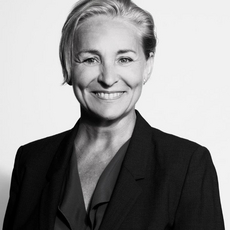Editorial
Issue 2018/01
Strategic Foresight: a Broader Vision, Fewer Crises?
Our current e-journal edition of Ethics and Armed Forces examines the question: “Strategic foresight: Does a broader vision mean fewer crises?”
Why choose this question? Firstly, because interdependent developments like globalization and climate change mean there is a constantly growing need for a systematic way of dealing with uncertainty. Secondly, because it is hoped that strategic foresight will provide new approaches to complement classical crisis prevention – a goal recently set down in the 2016 White Paper and in the German federal government’s guidelines on “Preventing Crises, Resolving Conflicts, Building Peace,” published in 2017.
The question at the core of foresight processes is: What is in store for us? What do we need to prepare ourselves for? The question may be as old as humanity itself, but the conditions under which it is asked are becoming ever more challenging. Social scientists and crisis researchers have coined a term for this: “dynaxity” (dynamic complexity). Digitalization and autonomization processes, new capabilities (e.g. fully autonomous weapons or human enhancement), and new forms of conflicts (cyber war, hybrid wars, etc.) are also changing the coordinates of security policy. Old certainties suddenly vanish; crisis phenomena such as the rise of populism and nationalism seem to catch us completely unprepared.
Being able to know is evidently becoming continuously more difficult. And because that is the case, there is a growing desire not only to observe change, but to apprehend possible futures in different ways. In the sense of thinking ahead to prepare for eventualities. In the sense of identifying and examining options for action. And in the sense of reflecting on one’s own point of view.
The authors of this issue offer an interdisciplinary investigation of the question “Strategic Foresight: Does a broader vision mean fewer crises?” – from the perspective of futures research, theology and ethics, (security) policy and the military. They explain key concepts, give an overview of foresight practice in Germany, and critically examine its capabilities and limitations. Can foresight be made to serve the goals of peace ethics, or does it only serve particular interests which are likely to make crises worse?
Find out, among other things, what the sinking of the Titanic has to do with foresight; why in the sense of the virtue prudentia – prudence – we should not lose sight of the past; how working with scenarios can promote social reconciliation processes; and what obstacles lie in the way of “future work” in day-to-day politics.
Moreover, the normative aspect – the act of imagining desirable futures and the power of visions to promote peace – is not excluded from foresight processes. “Dreams are very, very important to me. If you want to change something, you need a dream, a vision. A belief that it is possible to make this vision a reality” (translated from German).1
Practicing foresight means expanding one’s view of the world. This requires openness and flexibility toward all kinds of future scenarios, including contrary viewpoints. It requires a close consideration of what we think of as given, and what we believe can be changed. In this respect, it always draws our attention back to ourselves.
I hope you will enjoy reading this examination of “possible futures”.
1 Dr. Beatrice Fihn, Executive Director of the International Campaign to Abolish Nuclear Weapons (ICAN), which was awarded the 2017 Nobel Peace Prize on October 6, 2017. Zeitmagazin, January 25, 2017, p. 25.
Read the magazine
